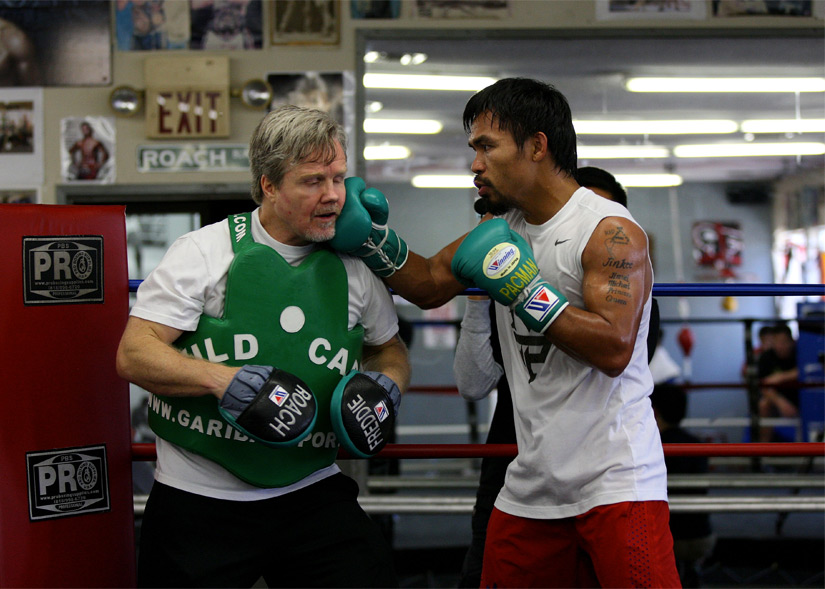[This review was originally published during our SXSW 2014 coverage. It is being reposted to coincide with the documentary’s wide release.]
[youtube id=”5-L2tTtLLVA”]
Manny
Directors: Ryan Moore and Leon Gast
Rating: N/A
Release Date: March 8, 2014 (SXSW)
Manny Pacquiao is one of those figures that can transcend from their initial platform and find success in multiple ways outside of what they’re known for. And, for better or worse, Manny Pacquiao has become not just a boxer, but a singer, an actor, a politician, and a missionary of sorts. Diehard Pacquiao and boxing fans have seen the effects of overexertion in a handful of his fights, and I always wondered how Pacquiao himself viewed his journey. In Manny, not only is the question of Pacquiao’s identity explored, it delves deeper into the boxer’s history to paint a better, more detailed picture of who Manny is outside of the ring and away from the spotlight.
As a half-Filipino man, I have to say that I’m very familiar with Pacquiao’s story. As a young boy growing in poverty in the Philippines, Pacquiao turned to boxing to support himself and his family. After finding success, it wasn’t until he was paired with famed trainer and former boxer Freddie Roach that Pacquiao’s star began to rise in which he has (so far) captured eight different titles at eight different weight classes. All of this is retreaded ground for anybody familiar with either boxing or Pacquiao, and the background information on Pacquiao is necessary for audiences that may not be familiar with Manny. However, what I loved most about the documentary is that not only does it create a running narrative of Pacquiao’s “rags to riches” story, it pairs it well with amazing cinematography, editing, and a mix of both on-location shots and archival footage to properly tell Pacquiao’s real story, with both good and bad sides given equal focus.
The big question I asked myself (and both director Ryan Moore and editor Lenny Mesina) was the nature of the documentary’s intent: Is it meant to appeal to pre-existing Pacquiao fans, or is it meant to bring in those that may not be familiar with Pacquiao? I believe that Manny appeals to both groups, but pre-existing fans will find something extra to enjoy about the documentary. I won’t even lie, I found myself getting teary-eyed, not only because of my admiration for Pacquiao as a boxing fan, but for everything he represents as a cultural icon for The Philippines.
Again, I’m biased when it comes to Manny, and I felt a stronger connection to this documentary than everything else I viewed at SXSW. However, with my bias set aside, I truly believe that Manny will find success in both pro-Pacquiao circles and general documentary/cinephile circles. When it comes to sports documentaries, fans will always have a connection they will turn to to better understand the recipient of their cheers and pride; however, I think the real magic is when a well-crafted documentary can turn viewers into a fan of the subject, and I believe Manny is capable of doing that.

